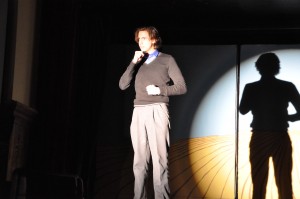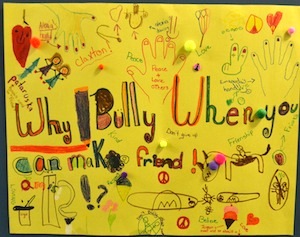 Remember the story of Pinocchio: the little boy whose nose grew longer whenever he lied? Or the antics of Jim Carey in the ‘90s classic film “Liar Liar,” where he plays Fletcher Reede, a fast-talking lawyer who has built his career on a bed of lies? After Reede’s son makes a birthday wish that his dad stop lying, Jim Carey is suddenly only able to tell the truth and his world is turned upside down. Or perhaps you’re a fan of the current hit TV Drama, “Suits?” Acknowledged for its fashion flair, it focuses on the legal partnership between flashy lawyer Harvey—and and his legal assistant Mike—who professes to be a Harvard law grad but never even attended any law school. Mike’s just really smart. So the two tolerate the “big lie” for convenience sake.
Remember the story of Pinocchio: the little boy whose nose grew longer whenever he lied? Or the antics of Jim Carey in the ‘90s classic film “Liar Liar,” where he plays Fletcher Reede, a fast-talking lawyer who has built his career on a bed of lies? After Reede’s son makes a birthday wish that his dad stop lying, Jim Carey is suddenly only able to tell the truth and his world is turned upside down. Or perhaps you’re a fan of the current hit TV Drama, “Suits?” Acknowledged for its fashion flair, it focuses on the legal partnership between flashy lawyer Harvey—and and his legal assistant Mike—who professes to be a Harvard law grad but never even attended any law school. Mike’s just really smart. So the two tolerate the “big lie” for convenience sake.
Another film focused on the drama around lies is “Autumn in New York” starring Wynonna Ryder and Richard Gere. Ryder’s character has an uncanny ability to sense when someone’s lying (sort of like parents and teachers). For them it’s not magic, it comes with practice. My mother used to say she saw it in our eyes and all over our faces whenever any of the five boys in our family even tried to stretch the truth, never mind offer up an outlandish false tale. I’m sure our students have similar relationships with parents at home.
I mention this today because no matter what our students are studying in school, each is essentially always seeking the truth, for in truth there is deeper understanding. What’s the correct answer to a problem? What’s the right thing to do, morally? In schools we are driven by the pursuit of truth.
Unfortunately, in our quest for the truth, we all lie. The world demands that we lie to sometimes to protect a friend–and probably most often to protect ourselves.
However, growing up it is natural for children to be “offside” and learn from it. So little white lies are common to avoid getting caught after breaking a minor rule. Kids are experts at making situations murky and testing boundaries. It’s a time-tested strategy of generations of children and teenagers.
Philosophers have long-debated the notion of the so-called “just lie.” For example, consider all the brave souls who hid Jews from the Nazi Storm Troopers during the Holocaust of the 1930’s. These are serious situations of compassion or personal safety in the face of evil that require dishonesty to achieve a truly just goal.
Sometimes we all tell little “white lies” or we bend the truth. A close friend shows up in a truly unfortunate new outfit declaring how much she loves it. You may likely quietly agree, not wanting to hurt her feelings. This kind of thing is not considered sinful or outrageous by anyone.
But how about clear omissions or blatant concealment to cover oneself or boost personal image or reputation? How far can the truth be bent before it’s too far? If children or teens get away with it, do they repeat it? Do they start to believe your own lies?
Unfortunately, we actually have a lot of examples of straight out lying presented to us in society on a regular basis.
The Quebec Charbonneau Commission looking into corruption and payoffs in Montreal has unearthed some very unseemly practices regarding contracts for work in our city—and there has been lots of media coverage about this deceit since the fall.
Also, the sad story of Lance Armstrong is a classic current example of a once-respected role model who has fallen from grace for lying and cheating. I was a big Armstrong fan years ago. I loved his book Not About the Bike, about overcoming cancer and the resiliency of the human spirit. However, just a few weeks ago he was exposed for his years of doping while on the cycling circuit. Even when he appeared on TV with Oprah to fess up publically, he succumbed to blaming others. His rationale that “everyone else was doing it” was a lame excuse. But it’s simply not an acceptable excuse. As a result of his lies, Armstrong has lost all of his seven Tour de France championship titles, along with millions of dollars in lucrative endorsements. Moreover, Armstrong’s “Live Strong Foundation” for cancer research has taken quite a knock. Most notably though, his situation is not primarily about the money. Armstrong has lost his integrity. Until his final breath and beyond, he will forever be labeled a deceitful liar.
Writer Eric Hoffer reminds us “when we lie, we lie loudest to ourselves” – about everything from what we spend and eat, to rationalizing our actions, however unattractive or unacceptable to others. For anyone who gets caught in that cycle, how many of your own lies do they start to believe?
The fact is that honesty and trust are the bedrock of strong relationships, whether in one’s family, here at school, among friends, the workplace, and the larger community.
We all depend on trust and honesty to build a sense of integrity over time. Without integrity and trust, the laws of the jungle would dominate.
To Lance Armstrong, to corrupt public officials on the take at city hall, and to students of LCC, I send a reminder: corruption and dishonesty corrodes. Like rust itself, corrosion destroys institutions, people and human relationships.
Yes, sometimes the untruth – the “white lie” – is morally acceptable. But don’t forget that it is honesty and integrity that binds us together. All human relations depend on the expectation that as a rule, we tell the truth and can have confidence in this as a constant When it comes to the so-called “big lie,” it will always corrode and destroy in a big way.
Let’s do our utmost to set examples by doing our best to seek the truth and defend honesty and integrity as core values at LCC. – Christopher Shannon, Headmaster



